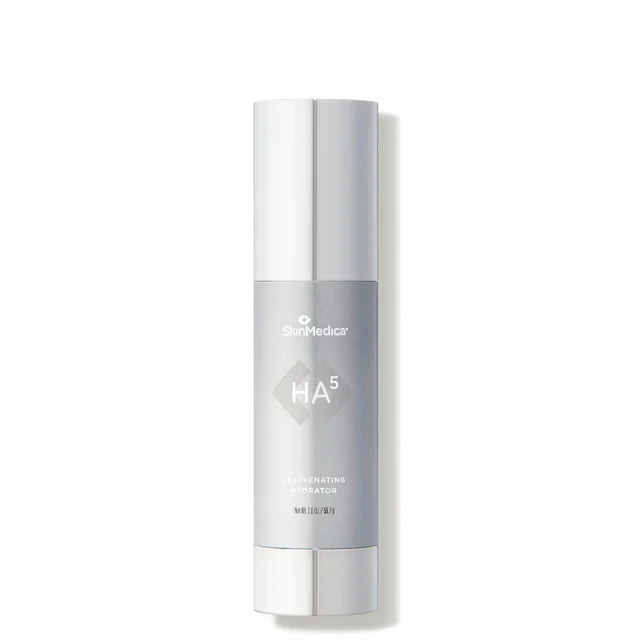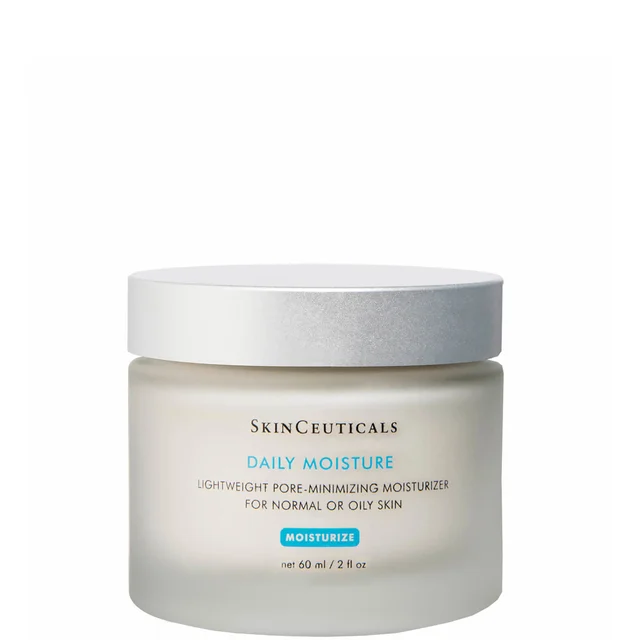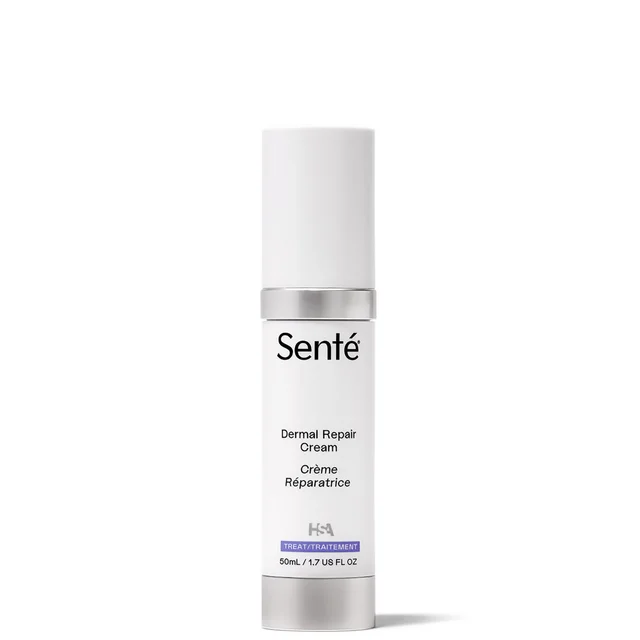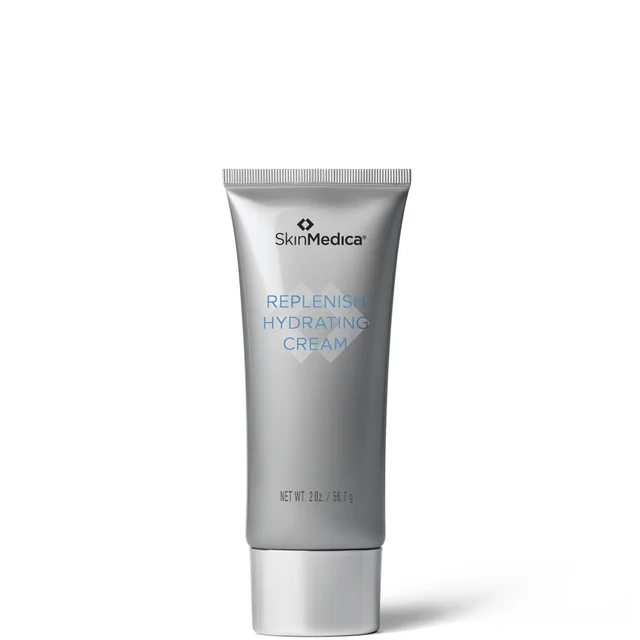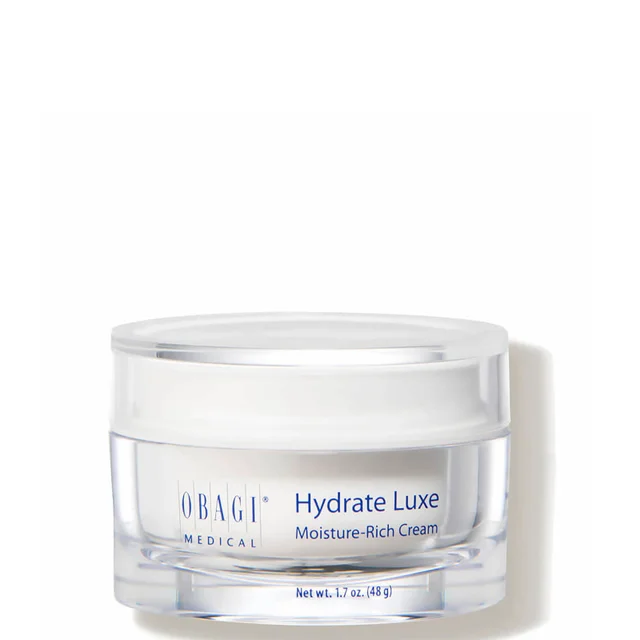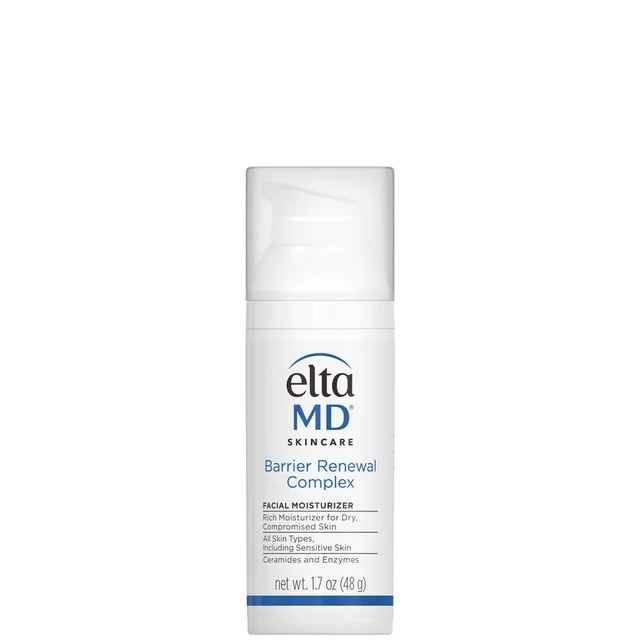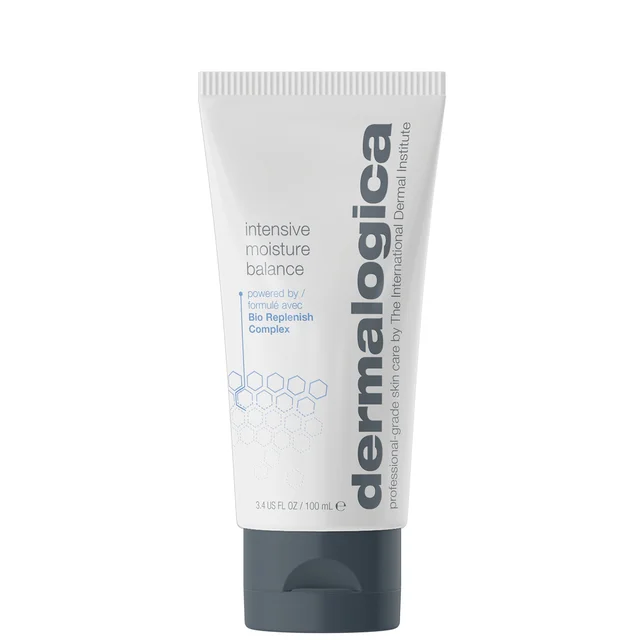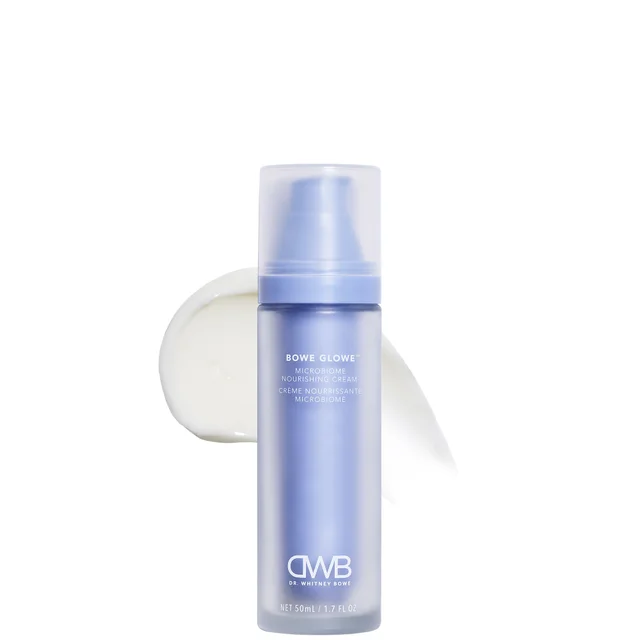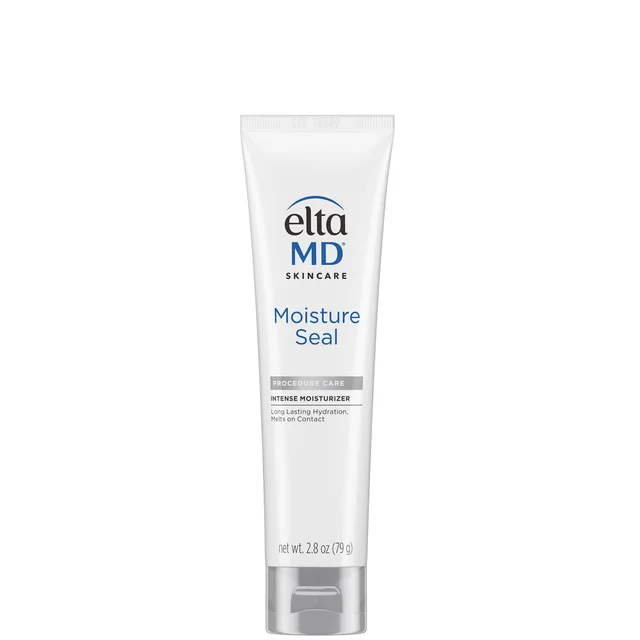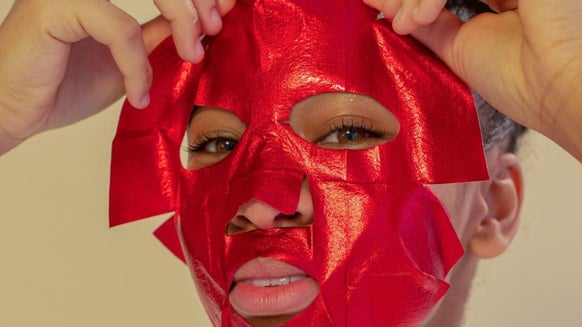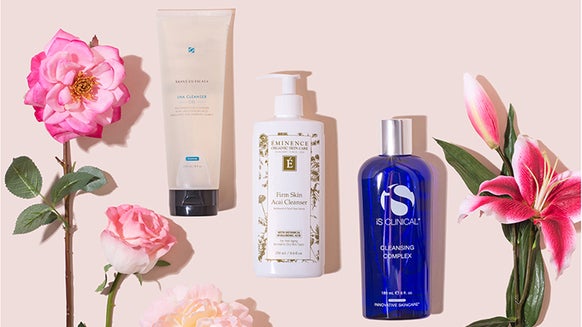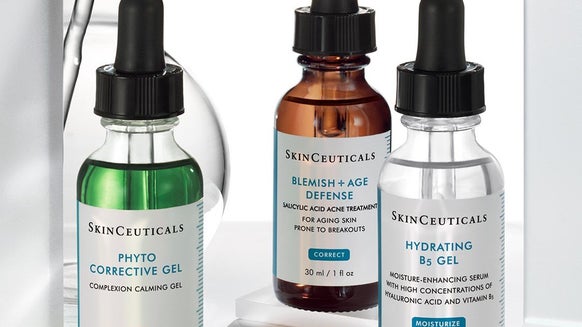Hydrating vs. Moisturizing: How They Differ According to a Derm
Perfectly moisturized, plump, bouncy, and soft skin is the cornerstone of youthful, healthy skin. But with so many product options out there that hydrate and moisturize the skin, deciphering through all the creams, serums, and lotions to get your best skin ever can become a confusing game.
Ample amounts of water are necessary to keep the skin soft, smooth, healthy, and with a natural glow. But what many of us do not realize is that although the words hydrating and moisturizing are often used interchangeably when referring to the skin's water content, moisturization and hydration are not the same thing. While both are key in providing skin with much-needed nourishment, knowing the difference between hydrating and moisturizing the skin will help you make the best choice when targeting your skin's specific needs.
Meet the Experts:
- Dr. Anna Guanche, M.D. - Board-certified Dermatologist
- Dr. Tsippora Shainhouse, M.D., F.A.A.D - Board-certified Dermatologist
What Does Hydrating Your Skin Mean?
According to Dr. Anna Guanche, M.D., a board-certified dermatologist in Los Angeles, hydration refers to the water content in the skin cells that causes them to swell and become plump, giving the skin a healthy appearance while reflecting light properly. "If water flows out of the cells and the cells are dehydrated, they can become shriveled, which leads to lackluster skin," she explains. If your go-to skin hydrator is a topical one, like a cream or lotion, the cells are infused with water as well as other skin-hydrating ingredients by pulling hydration into the skin, which allows the skin to absorb moisture properly and nutrients, leaving the cells plump and supple, improving the skin's hydration levels, skin barrier function and overall appearance and functionality.
When the skin is dehydrated, meaning it looks dull, lifeless, thin and laden with deep wrinkles, hydrating skincare products are a must, giving the skin a soft and more elastic look and feel.
What Does Moisturizing Your Skin Mean?
Moisturizing the skin is more about trapping moisture and then sealing it in to help build the skin’s protective barrier, prevent water loss and keep the skin soft and smooth, says Dr. Tsippora Shainhouse, M.D., F.A.A.D, a board-certified dermatologist in Los Angeles.
Moisturizers can be any emollients, humectants, occlusives, or oil-based ingredients that create a seal on the surface of the skin that prevents water from escaping. The more water in the skin, the better moisturized it is and the healthier and softer it is. All skin types need moisturizing, especially if the skin is dry, rough, or has flaky patches.
How to Know if Your Skin Needs Hydration or Moisture
If your skin tends to be on the dry side, a dose of moisturizer is usually all it takes to restore it to its plump, soft appearance. But if the skin is dehydrated, it lacks hydration, and a hydrating product, often used before moisturizer, is necessary to get the job done.
To determine if your skin is dry or dehydrated, a quick look at its current state and how much water is lacking from the surface can clue you in. The skin has a natural lipid barrier that protects itself from damage and water loss. If you're prone to dry, flaky skin, it's a tell-tale sign that the skin is not creating ample lipid cells to form a protective barrier, making it unable to lock in moisture.
"A moisturizer's job is to reduce the amount of water that evaporates off the skin to minimize transepidermal water loss. They lock in and seal in moisture," explains Dr. Guanche. Moisturizing is particularly helpful for dry, peeling or flaking skin after undergoing a chemical peel. Dr. Guanche adds that it is also beneficial when using Retin-A and during the winter.
On the other hand, if your skin is dull and lackluster with stubborn fine lines and wrinkles, it is likely dehydrated. "Dehydrated skin means the cells are parched and starved of water. When this happens, they are not plump and volumized and appear shriveled collectively," explains Dr. Guanche. People can have hydrated but dry skin or dehydrated but moisturized skin. Ideally, we want hydrated, bouncy, swollen cells that have topical moisture locked into them," she explains.
How to Hydrate the Skin
The easiest and cheapest way to hydrate the skin is still drinking plenty of water daily, but topical skincare products also have a place when it comes to hydrating the skin. These products, available in various textures and formulations, bind and draw water into the cells, suggests Dr. Guanche. Natural humectants allow the skin to improve its ability to hydrate itself over time, so look for skincare products with hydrating ingredients like hyaluronic acid, aloe, honey, alpha hydroxy acids and marine extracts. Synthetic humectants, glycerin, urea and propylene glycol are also good to integrate into your skincare routine to help rehydrate the skin.
“Hydrating ingredients are generally appropriate for all skin types. They are water-soluble, won’t clog pores and should be devoid of alcohol so they don’t actively dry out or irritate the skin surface,” adds Dr. Shainhouse.
Shop the Best Hydrating Products
SENTÉ Dermal Repair Cream
SkinCeuticals Hyaluronic Acid Intensifier
Potent serums, like this one, can hydrate the skin, leaving it looking healthy, fresh, and youthful. Layer on this one to boost the skin's hyaluronic acid levels and restore elasticity.
SkinMedica Replenish Hydrating Cream
This daily-use hydrating cream helps restore the skin’s moisture levels leaving it smoother, softer and more balanced thanks to known hydrators like chamomile-derived bisabolol, antioxidant-enriched green tea and skin-brightening vitamin C.
Obagi Medical Hydrate Luxe
EltaMD Barrier Renewal Complex
Dry and mature skin craves hydration, which is where this cream comes into play. Rich in enzymes and essential lipids that strengthen the skin and promote cell turnover, it leaves the skin soft, bright, glowy, comforted, and smooth.
How to Moisturize the Skin
As far as moisturizers go, the options seem endless in terms of formula and ingredients. "Moisturizers can be lighter or heavier and formulated for different seasons and different skin types," says Dr. Shainhouse. "Warm, sweaty spring and summer months may call for a lightweight gel or light lotion, while dry, cold and windy fall/winter weather may require heavier products with ceramides, oils (coconut, almond), butters (shea or cocoa) or dimethicone," she notes. These types of ingredients, commonly found in moisturizers, are best known for their moisturizing and nourishing effects, as well as enhancing the skin's vitality and protecting against free radical damage.
When it comes to choosing the best type of moisturizer for your skin type, Dr. Guanche recommends light, oil-free moisturizers, usually in the form of a lotion, for acne-prone skin. "These have less oil and more water content." She says a lotion or cream will suffice for combination skin, while a serum or a more emollient cream is best for dry skin types.
Shop the Best Moisturizing Products
Medik8 Total Moisture Daily Facial Cream
This daily moisturizer is the one you will want to reach for if you desire instantly plumper and deeply moisturized skin. It's lightweight yet super moisturizing, thanks to hyaluronic acid and prebiotic peptides, and it improves the skin in one hour.
Dermalogica Intensive Moisture Balance
Dry skin is bound to happen to us all at some point, so keeping a moisturizer like this one on hand is essential. Not only does it lock in hydration to restore balance to the skin, but it also helps camouflage the look of fine lines and other signs of aging, too.
Dr. Whitney Bowe Beauty Bowe Glowe Microbiome Nourishing Cream
Clinically proven to moisturize the skin both day and night, this deeply hydrating moisturizer works hard to minimize the appearance of fine lines, strengthen the skin barrier, and lock in moisture for perfectly hydrated and glowy skin.
EltaMD Moisture Seal
FAQs
Do You Hydrate or Moisturize First?
If your skin requires hydrating and moisturizing to reinstate its health, it's always best to start by applying a hydrating product first and then follow up with a moisturizer. This way, water is first attracted to the skin before the moisture is locked in.
Does Your Skin Need Both a Hydrator and a Moisturizer?
Not every skin type needs hydrating and moisturizing; some are healthy and optimal with just one or the other. But many skin types benefit from both hydrating and moisturizing it to keep it soft, healthy and functional. While there's no harm in using a hydrating or moisturizing product alone, pairing the two together will always create more optimally hydrated skin that reflects its current state of health.
The Bottom Line
All skin types benefit from hydrating and moisturizing products, and finding the right ones for your skin type really comes down to its current state and needs and the level of dryness you are experiencing. Whether you use a hydrator, a moisturizer, or a combination of the two, apply them in the morning (always before sunscreen) and at night to reap the benefits and see a noticeable difference in the skin.

Elise Minton Tabin is an award-winning beauty journalist, editor, and beauty expert with more than 16 years of experience. She previously held the title of Executive Beauty Editor at NewBeauty magazine, where she reported on beauty, plastic surgery, anti-aging, health and wellness. She was also instrumental in the launch of the beauty supplement brand Hush & Hush. A self-professed beauty junkie and retinol and sunscreen pusher, Elise knows what’s new, what works and who’s the best to go for every procedure under the sun. Follow Elise on Facebook, Instagram, and on her beauty blog, elisetabin.com
